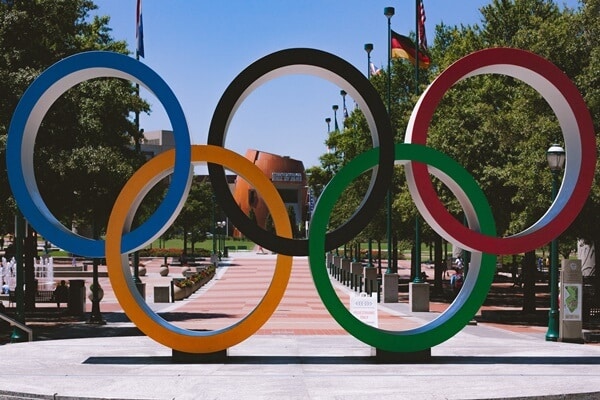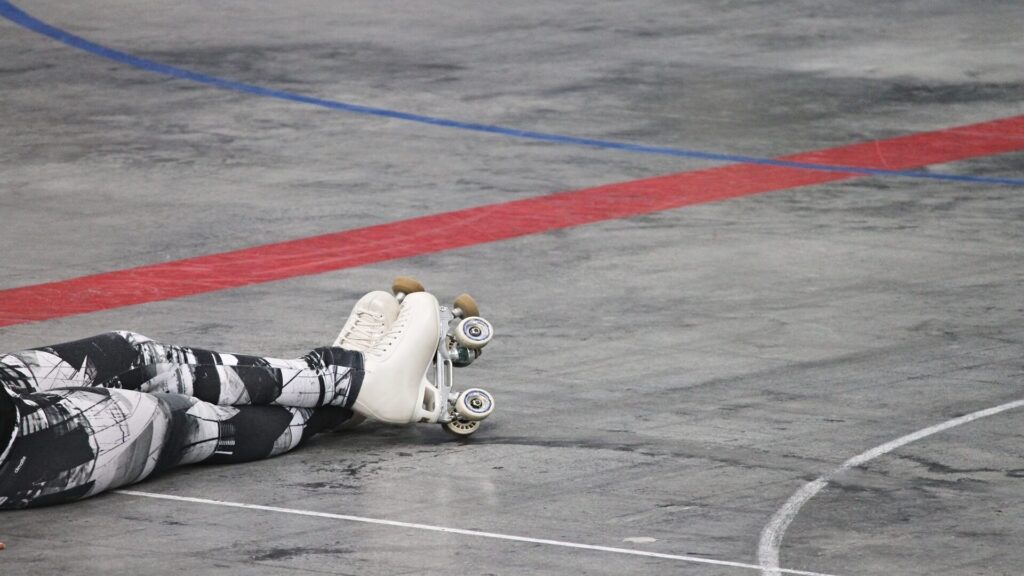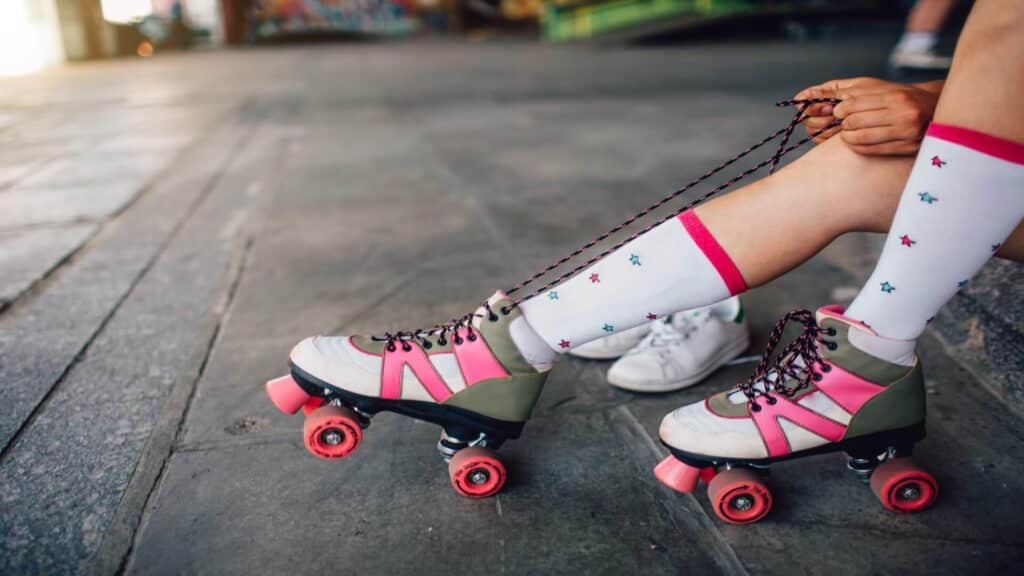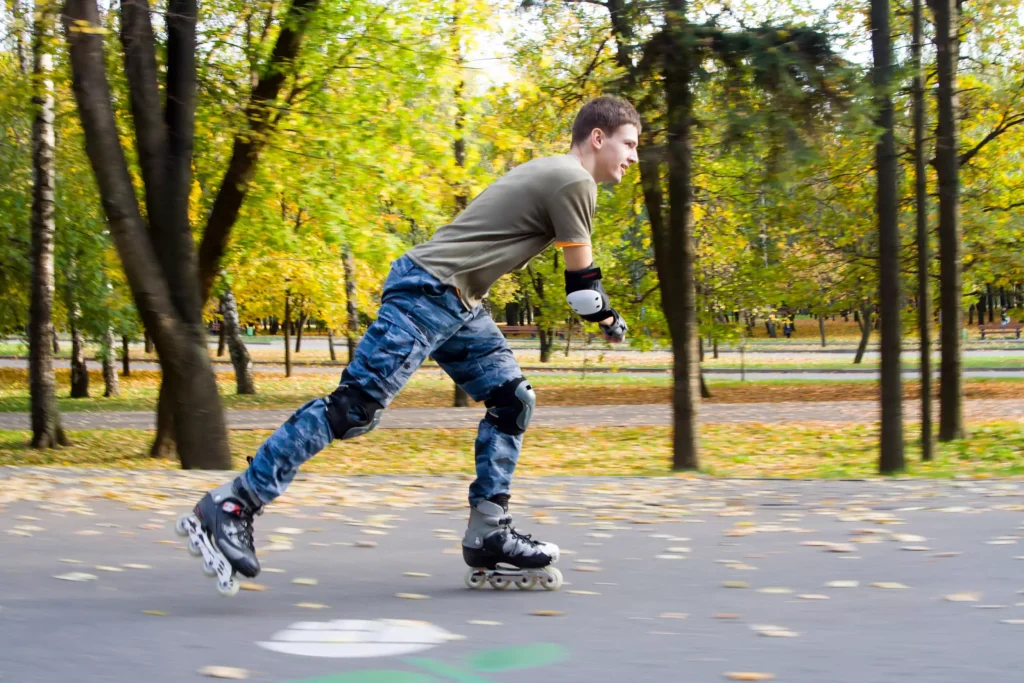The Olympic games are a time of celebration for all the athletes and fans. Every four years we see new records set, new heroes born, and new memories made. However, there is one sport that has been left out of the Olympics for so long that it should be considered a crime: roller skating.
In this article, I will explore the reasons why roller skating is not an Olympic sport.
Table of Contents
The History of Roller Skating and How it Became a Popular Sport
Roller skating is a sport that has been around for centuries, but it didn’t become popular until the 20th century. It all started with a man named John Joseph Merlin. He had an idea to combine ice skates and wheels together to make a new kind of skating. He called this new invention “roller skating.” Merlin first introduced his invention in England in 1760 and the game became popular very quickly. The people loved it because they could skate indoors during wintertime when the weather was too cold to be outside on the ice.
In 1863, James Plimpton created “quad roller skates” which were four times as big as Merlin’s original design and allowed for faster speeds and jumps in roller skating competitions. The quad skate was also more stable than the original design and was easier to use on a variety of surfaces, such as asphalt.
When the sport became popular, many people began to roller skate in swarms and it soon became a common activity. The sport was also introduced in America in the early 1900s. The first roller skating rink opened in Chicago Illinois, and over 7,000 people attended the open night of the Chicago Coliseum.
Why Roller Skating is Not an Olympic Sport
Roller skating is not an Olympic sport because it was not included in the list of sports that are part of the Olympic program. The Olympic program is the list of sports that are contested at the Olympic Games, and it is decided by the International Olympic Committee (IOC).
The IOC is the international organization that is responsible for organizing and overseeing the Olympic Games, and it has the authority to decide which sports are included in the Olympic program.
There are a number of reasons why roller skating has not been included in the Olympic program. One reason is that roller skating is not a widely popular sport around the world, and it is not as well-known or as widely practiced as other sports. Additionally, roller skating is not a traditional Olympic sport, and it has not been included in the Olympic program for many years.
Another reason why roller skating is not an Olympic sport is that it does not meet the criteria for inclusion in the Olympic program.
In order to be considered for inclusion in the Olympic program, a sport must meet certain criteria, such as having a large international following, having a well-established international governing body, and having a strong presence in multiple countries. Roller skating does not meet these criteria, and therefore it is not an Olympic sport.
It is worth noting that roller skating is a popular recreational activity and is enjoyed by people of all ages around the world. While it may not be an Olympic sport, it is still a fun and enjoyable activity that people can participate in and enjoy.
Why It Should Be an Olympic Sport
The first argument is that roller skating should be an Olympic sport because of all the health benefits that come with doing this activity.
The second argument is that roller skating should be an Olympic sport because it would bring more attention to this activity which would help to grow the sport.
Efforts by the roller sports world governing body (the Federation Internationale de Roller Sports, FIRS) to earn Olympic status for any of its disciplines were unsuccessful at the end of the 20th century. The International Federation of Roller Sports (FIRS) probably decided to not push the promotional envelope when quad hockey was only a demonstration sport at the 1992 Summer Olympics in Barcelona.

The Fight For Roller Sports To Get Into The Olympics
Now, in the U.K., the British Inline Skater Hockey Association (BiSHA) is working with other disciplines to form one governing body with the aim of achieving Olympic status. When it comes to roller skating, BiSHA has now achieved Sports Council recognition and is part of the British Roller Sports Federation (BRSF) – the governing body for roller skating disciplines.
FIRS tried to get Olympic status a few times from different roller sports, but the attempts became most active in 2000 when inline speed skating was promoted as the best option for the Olympics. With at least 20 other sports competing for space in the Olympics they had to reduce the number of games participating each year. This meant their chance of entry was pretty slim.
After inline skating was not accepted as an Olympic sport, many inline skaters switched to ice skating to get a shot at entering the Olympics.
The FIRS, which includes inline speed skating, roller figure skating, and roller derby, was campaigning to be included in the 2020 Olympic Games.
Will Roller Skating Be An Olympic Sport?
The International Olympic Committee (IOC) has been considering the inclusion of roller skating in the 2020 Olympics. There are many arguments for and against its inclusion.
Some people argue that roller skating is not a sport, but an activity. They claim that it does not have the same level of physicality as other sports and therefore should not be included in the Olympics. On the other hand, others argue that it can be considered a sport because it requires physical activity, strategy, and skill to perform well at it.
Others believe that roller skating is not a good addition to the Olympics because there are already too many sports being played at this event. They believe that adding more sports will make it difficult for viewers to keep track of what is going on during each competition.
How You Can Help Get Roller Skating In The Olympics
Roller skating is a sport that has many benefits. It is great for physical and mental health. It has been around for over a century. It is also one of the most popular sports in the world with more than 100 million people taking part in it every year.
There are many ways that you can help to push roller skating into the Olympic Games. The first way is to sign a petition in order to show support for the idea. Another option is to contact your local government representative and urge them to take a personal interest in the cause.








